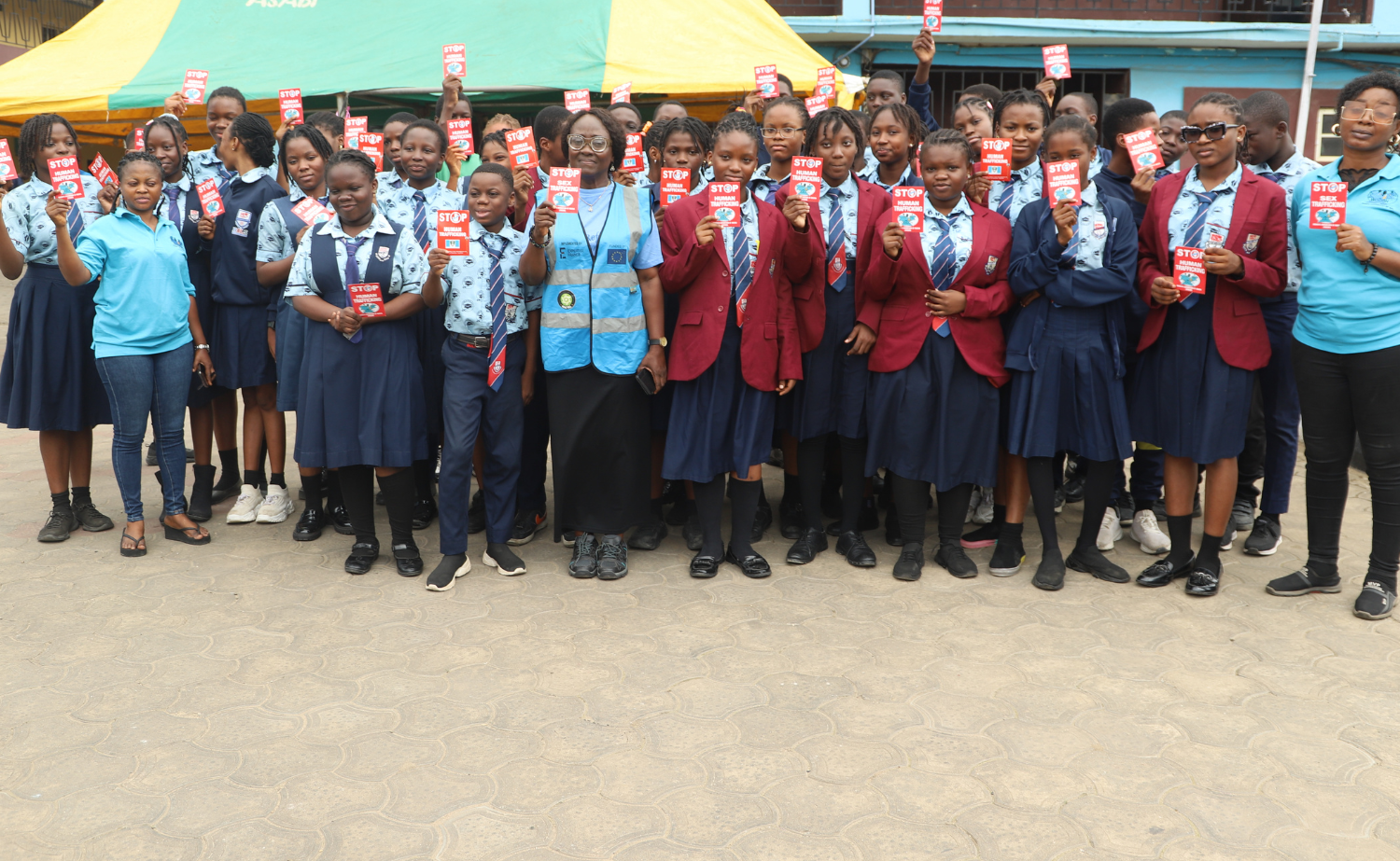Students of Bols International College, Ipaja, Lagos, recently participated in a sensitisation programme addressing the dangers of human trafficking and how to recognise the grooming tactics used by traffickers both online and offline. The event was organised by the Women’s Consortium of Nigeria (WOCON) in partnership with the National Agency for the Prohibition of Trafficking in Persons (NAPTIP), as part of a nationwide campaign to raise awareness among children ahead of the World Day Against Trafficking in Persons, marked annually on July 30.
Held in the school hall, the event featured expert-led sessions on fundamental human rights, online safety, and the manipulative strategies traffickers use to target young people. It also included interactive discussions and a question-and-answer segment that encouraged students to ask how to verify the authenticity of enticing opportunities offered to them.
Traffickers now target children using social media
Speaking at the event, Morenike Omaiboje, a board member of WOCON, emphasised the growing need to include children in anti-trafficking education, as they are increasingly being targeted.
“Children have become a part of our sensitisation campaigns for a while now because we see that traffickers have their strategy. When they see that adults may be difficult to get, they turn to children who are innocent, then they play on their innocence to get them and win them,” she said. “All over social media children are being groomed and recruited for commercial sexual exploitation. This partnership is to ensure children are also protected.”
Omaiboje commended NAPTIP’s efforts to include human trafficking awareness in school curricula, noting its effectiveness. “NAPTIP has incorporated human trafficking sensitisation in the curriculum of school children and it has helped a lot because more children are now aware and they know it,” she said.
Understanding human rights can prevent exploitation
Human rights advocate Atinuke Ogunbayo, highlighted the importance of teaching fundamental human rights from an early age. She argued that awareness empowers children to question suspicious actions and protect themselves.
“Knowing our fundamental human rights is enough for us to question some activities that come our way,” Bode explained. “But if we do not know the rights we have as a freeborn then we won’t know we need to ask certain questions.”
She urged schools to introduce human rights education as early as primary school and thanked Techpression for using media platforms to support the campaign. “I appreciate Techpression for using the media to join the campaign against trafficking as the internet is used to groom youths into trafficking and it’s important that we all spread the message,” she added.
Students learn to identify traffickers, speak up, and understand their rights
Temiloluwa Adelaja, a student of Bols International College, shared her reflections from the session. “I learnt about human rights and that people cannot be trusted and anyone can be trafficked. I also learnt that we should not be afraid to speak up and report to authorities and we should learn to speak to our parents if we feel bothered by people. I also learnt the girl child is most vulnerable.”
About World Day Against Trafficking in Persons
The World Day Against Trafficking in Persons is commemorated on July 30 each year to raise awareness of the plight of victims and to promote and protect their rights. This year’s global campaign focuses on strengthening the role of technology in prevention and awareness, a message aligned with the focus of the WOCON-NAPTIP initiative.
About WOCON and NAPTIP
WOCON (Women’s Consortium of Nigeria) is a non-governmental organisation committed to the promotion and protection of the rights of women and children, with a long-standing record in anti-trafficking advocacy.
NAPTIP is the Federal Government’s agency responsible for coordinating the response to human trafficking in Nigeria. It works through prevention, protection of victims, and prosecution of traffickers.











